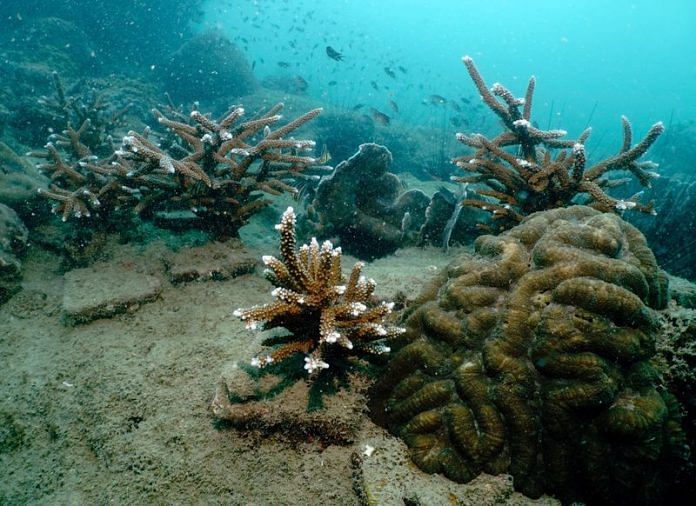By Napat Wesshasartar
OFF MAN NAI ISLAND, Thailand (Reuters) – On a starry night, four Thai marine biologists scuba dived through shallow waters off an island in the country’s south as billions of pink specks floated up from the ocean floor in a spectacle that takes place only once a year.
The pink specks were sperm and eggs released by coral. The scientists collected as many samples as possible for breeding, as they fight to save Thailand’s expansive reefs from degradation driven by warming oceans and human activity like tourism.
Their research is painstaking because the coral only spawn once a year, and it can take up to five years to raise the juveniles in a lab before they are ready to be transferred back onto the seabed.
“We have hope that the degraded coral reefs can recover and return to their former beauty,” said one scientist, Nantika Kitsom.
She added the loss of Thailand’s reefs doesn’t just pose a significant threat to the ocean ecosystem, but also to the country’s economy, as it impacts tourism and fisheries that depend on healthy coral habitats for fish populations.
The coral breeding and restoration project was started by Thailand’s Department of Marine and Coastal Resources in 2016 in the southern island of Man Nai, chosen because it houses over 98 species of coral.
The project came after as much as 90% of Thailand’s coral reefs were affected by a mass bleaching event that started in 2010, most likely triggered by rising water temperatures. Since the project was initiated, more than 4,000 coral colonies around Mun Nai Island have been restored, the department said.
According to the U.S. National Oceanic and Atmospheric Administration, the world is on the verge of a fourth mass coral bleaching event that could see wide swathes of tropical reefs die.
($1 = 151.0000 yen)
(Editing by Kanupriya Kapoor, Alexandra Hudson)
Disclaimer: This report is auto generated from the Reuters news service. ThePrint holds no responsibilty for its content.



